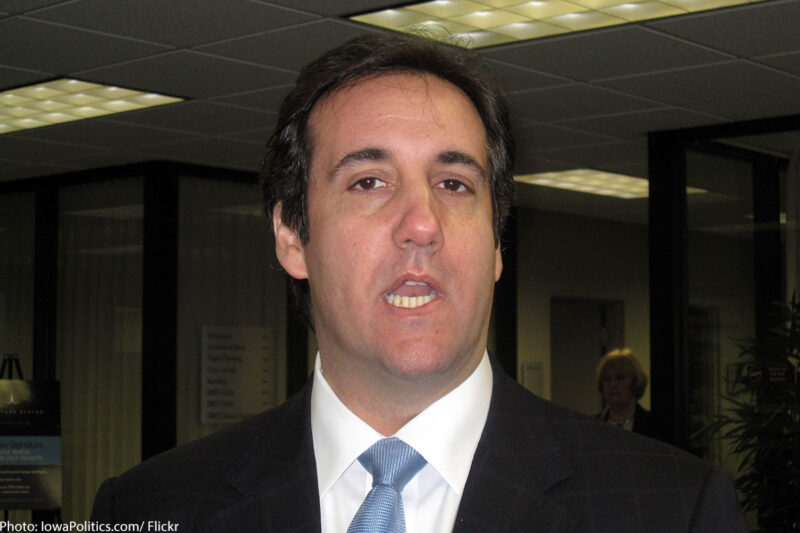
On Tuesday morning, President Trump reacted to the news that the FBI searched the office of his personal attorney, Michael Cohen, by tweeting “Attorney–client privilege is dead!” On Monday night, he called the search “an attack on our country.” Nothing could be further from the truth. While all the facts are not yet known publicly, all indications thus far are that the search was conducted pursuant to the rule of law, and with sign-offs from Trump appointees.
We don’t say this lightly. The ACLU is the nation’s premier defender of privacy, and we’ve long maintained that the right of every American to speak freely to his or her attorney is essential to the legal system. These rights are protected by the Fourth, Fifth, and Sixth Amendments, and we are second to none in defending them — often for people with whom we fundamentally disagree.
But we also believe in the rule of law as an essential foundation for civil liberties and civil rights. And perhaps the first principle of the rule of law is that no one — not even the president, let alone his lawyer — is above the law. And no one, not even the president, can exploit the attorney-client privilege to engage in crime or fraud.
The attorney-client privilege has always included a “crime-fraud exception,” which provides that if you are using the attorney-client relationship to perpetrate a crime, there is no privilege. You have a right to talk in confidence with your attorney about criminal activity, but you can’t use your attorney to accomplish a crime. A mobster suspected of engaging in bribery can consult his attorney about the facts of his alleged bribery without fear that the attorney will disclose those communications. But he has no right to have the lawyer deliver the bribe for him.
The ACLU has long recognized this exception. In fact, the ACLU cited the crime-fraud exception in our efforts to stop the government from concealing evidence of illegal torture by citing the attorney-client privilege.
While the crime-fraud exception is well-established, it is also narrow. And searches of lawyers’ offices should be tightly restricted. The Justice Department’s own guidelines recognize that searching an attorney’s office is not to be done lightly. Unlike ordinary searches, searches of attorney offices require extraordinary approvals from high-level officials — in this instance, from Trump appointees in the Justice Department.
According to the Justice Department’s on searching the office of an attorney, a “search warrant should be drawn as specifically as possible, consistent with the requirements of the investigation, to minimize the need to search and review privileged material to which no exception applies.” The guidelines go on to say that to protect the attorney-client privilege, “a ‘privilege team’ should be designated, consisting of agents and lawyers not involved in the underlying investigation,” in order to “minimize the intrusion into privileged material.” The burden of proof is on prosecutors to show that they and their investigation was not influenced by it. These protections may or may not be sufficient in particular circumstances, but they show that the Justice Department recognizes, and seeks to safeguard, the attorney-client privilege even in those rare circumstances where it seeks to search an attorney’s office.
The that Deputy Attorney General Rod Rosenstein, a Trump appointee, signed off on the search. Indeed, all of the top officials involved in the decision to go forward with the search are Republican: Robert Mueller, Rosenstein, and FBI Director Christopher Wray. The interim U.S. Attorney in Manhattan, Geoffrey Berman, is also a Republican, although he reportedly recused himself. That all of these Republican officials approved the search refutes any suggestion that it is a partisan “attack.” And most significantly, the search was conducted pursuant to a warrant issued by a nonpartisan federal magistrate judge.
We don’t know all the reasons and circumstances for the FBI search of Cohen’s office and home. News reports suggest that the focus is on Cohen’s payments to two women, adult film star Stormy Daniels and former Playboy model Karen McDougal to suppress their stories of affairs with Donald Trump, and that these payments may have been illegal. But what is clear is that prosecutors had to overcome high hurdles to obtain the search warrant. That the warrant was issued is not a sign that the attorney-client privilege is dead. It is, on the contrary, a sign that the rule of law is alive.

